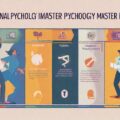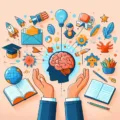Understanding the Foundations of Learning: Top Educational Psychology Books
Educational psychology plays a crucial role in shaping effective teaching and learning experiences. By exploring the cognitive, emotional, and social aspects of education, we can create more compassionate and supportive learning environments. This article highlights five influential educational psychology books that offer valuable insights for educators, students, and anyone interested in the science of learning.
1. “Mindset: The New Psychology of Success” by Carol S. Dweck
Carol Dweck’s groundbreaking work on mindset theory has revolutionized our understanding of motivation and personal development. This book explores the power of our beliefs and how they can dramatically influence our success in learning and life. Key takeaways include:
- The difference between fixed and growth mindsets
- How praise and feedback impact learner motivation
- Strategies for cultivating a growth mindset in education
Dweck’s compassionate approach emphasizes the potential for growth and improvement in all learners, fostering a more inclusive and supportive educational environment.
2. “How People Learn: Brain, Mind, Experience, and School” by National Research Council
This comprehensive textbook, produced by the National Research Council, synthesizes decades of research on learning and cognition. It offers a holistic view of how people learn, considering various factors that influence the learning process. The book covers:
- The science of learning and memory
- The role of prior knowledge in new learning
- Effective teaching strategies based on cognitive research
By understanding the complexities of human learning, educators can create more empathetic and effective teaching methods that cater to diverse learning needs.
3. “Visible Learning” by John Hattie
John Hattie’s “Visible Learning” is a landmark study that synthesizes over 800 meta-analyses relating to student achievement. This book provides evidence-based insights into what truly works in education. Key aspects include:
- The importance of feedback and its impact on learning
- The role of teacher-student relationships in educational success
- Strategies for making learning visible and meaningful
Hattie’s work emphasizes the significance of building strong, supportive relationships between teachers and students, highlighting the human element in effective education.
4. “Educational Psychology” by Anita Woolfolk
Anita Woolfolk’s comprehensive textbook has been a staple in teacher education programs for decades. It covers a wide range of topics essential for understanding the learning process and effective teaching strategies. The book explores:
- Cognitive development and learning theories
- Motivation and classroom management
- Assessment and individualized instruction
Woolfolk’s approach emphasizes the importance of creating inclusive and supportive learning environments that cater to diverse student needs, promoting wellbeing alongside academic achievement.
5. “Make It Stick: The Science of Successful Learning” by Peter C. Brown, Henry L. Roediger III, and Mark A. McDaniel
This accessible book bridges the gap between cognitive science and practical learning strategies. It challenges common misconceptions about learning and offers evidence-based techniques for more effective study and teaching. Key points include:
- The benefits of spaced repetition and retrieval practice
- The importance of effortful learning for long-term retention
- Strategies for applying cognitive science to real-world learning situations
By focusing on how our brains actually learn and retain information, this book empowers learners to take control of their educational journey with compassion and understanding.
The Impact of Educational Psychology on Wellbeing
These educational psychology books not only provide valuable insights into the learning process but also emphasize the importance of creating supportive, inclusive, and compassionate learning environments. By understanding the cognitive and emotional aspects of learning, we can foster educational experiences that promote both academic success and personal wellbeing.
Educators who apply these principles can create classrooms where students feel valued, understood, and motivated to learn. This approach not only enhances academic performance but also contributes to the overall emotional and social development of learners.
FAQ: Educational Psychology and Learning
Q1: How can understanding educational psychology benefit teachers?
A1: Understanding educational psychology helps teachers create more effective and compassionate learning environments. It provides insights into how students learn, enabling teachers to adapt their teaching methods, motivate students more effectively, and address diverse learning needs.
Q2: What is the difference between a fixed and growth mindset?
A2: A fixed mindset believes that abilities and intelligence are static traits, while a growth mindset believes that abilities can be developed through effort and learning. Cultivating a growth mindset can lead to greater resilience and achievement in education.
Q3: How does feedback impact learning?
A3: Effective feedback is crucial for learning. It helps students understand their progress, identify areas for improvement, and feel supported in their learning journey. Constructive feedback can significantly enhance motivation and achievement.
Q4: What role does motivation play in the learning process?
A4: Motivation is a key factor in learning success. It affects student engagement, persistence, and overall achievement. Understanding different types of motivation (intrinsic and extrinsic) can help educators create more engaging and effective learning experiences.
Q5: How can educators apply cognitive science to improve teaching?
A5: Educators can apply cognitive science principles by incorporating strategies like spaced repetition, retrieval practice, and elaborative rehearsal into their teaching methods. These evidence-based techniques can enhance long-term retention and understanding of information.









